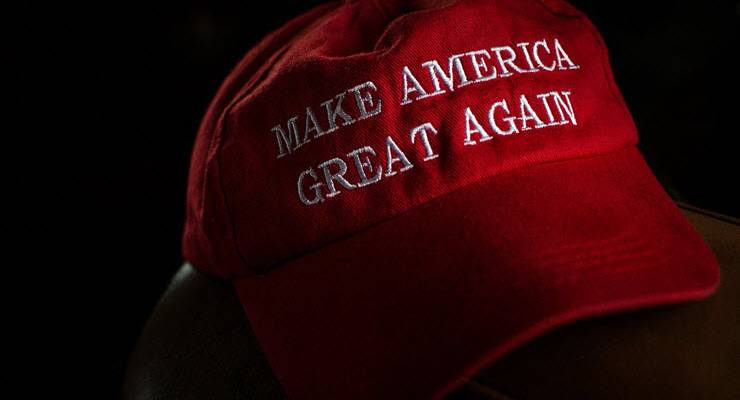
A “Cup O’ Jo” mug featuring Jo Biden’s smiling face.
Elizabeth Warren-themed dog and cat collars bearing phrases like “Consumer Watchdog” and “Purr-sist”.
A sweater branded with the words “Boot Edge Edge” in bold (the correct pronunciation of Democratic front-runner Pete Buttigieg’s last name).
These items are just some of the merchandise 2020 Democratic presidential candidates are currently flogging to help raise much-needed campaign funds.
While Australia’s major political parties offer a limited range of party paraphernalia for purchase — like red “Labor” bucket hats or a stubby holder with the phrase “How Good is Australia” in blue and white — it’s slim pickings compared to the millions of dollars worth of merchandise each presidential hopeful has up for grabs in the United States.
It wasn’t until Barack Obama’s 2008 run for US president that the potential for campaign merch to transform the small shopper into a political pledger was realised.
With every purchase legally considered a 100% political donation, the Obama campaign raked in almost $40 million selling election T-shirts and bumper stickers in the 2008 and 2012 races.
Several 2016 presidential candidates followed suit. Bernie Sanders sold over $15 million in merchandise in the Democratic primaries, according to the digital agency that managed his operation. President Donald Trump since reportedly pulled in over $20 million selling his Make America Great Again Hats and other items between 2016 and 2018.
Perhaps more significantly, campaign merchandise is another way for candidates to express their political positions.
Trump’s re-election campaign recently raised $460,000 from selling plastic straws with the tagline “Liberal paper straws don’t work” (Trump previously said the US has bigger environmental problems than straws).
Though products can also inadvertently reflect a candidates’ priorities: CNBC News recently pointed out the irony of Trump hosting an event promoting American-made products, given only roughly 15% of his 268 campaign items for sale are produced in the US. Current Democratic front-runners like Warren, Biden, Sanders and Buttigieg have been careful to note their products are American-made and union-printed.
As the Democratic primaries come to a head and the race to outspend intensifies, it will be interesting to see whether the number of shirts sold makes the difference between who is in and who is out.








“Trump previously said the US has bigger environmental problems than straws” he’s right, it’s him and his administration.
I presume the biggest boon of the sale of these products is ready made consumer data about where your supporters across the USA happen to live.
If I’m willing to buy a Trump hat or Biden mug, you could essentially lock that vote in.